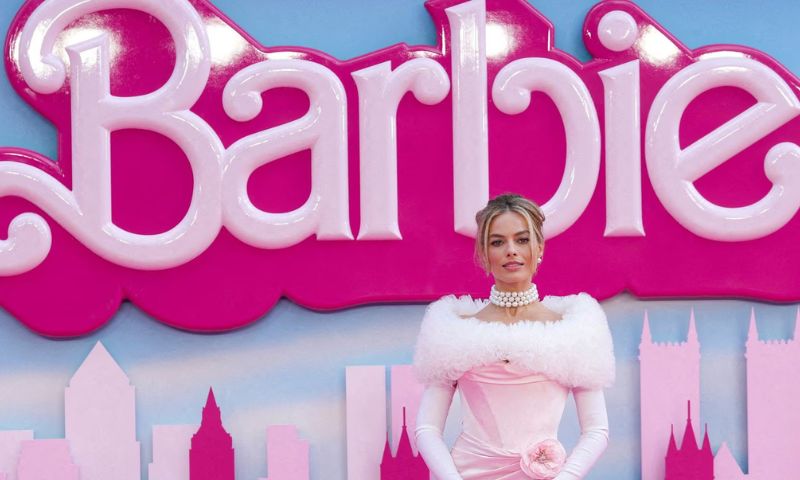KUWAIT CITY: Kuwait has recently taken a decision to ban the widely popular film “Barbie,” produced by Warner Brothers, in an effort to uphold what they consider to be “public ethics and social traditions.”
This move comes shortly after a Lebanese minister raised concerns about the movie potentially “promoting homosexuality.” The film, which has achieved astounding success at the global box office with over $1 billion in ticket sales since its release, has attracted attention not only for its financial triumph but also for the discussions surrounding its content.
A spokesperson for the Kuwaiti Ministry of Information conveyed that the film, along with the Australian supernatural horror movie “Talk to Me,” has been banned due to its portrayal of ideas and beliefs that are perceived as incompatible with Kuwaiti society’s norms and the maintenance of public order. This decision emphasizes the government’s commitment to preserving cultural values and norms, even in the face of international cinematic success.
Similarly, Lebanon’s Culture Minister Mohammad Mortada voiced his concerns about “Barbie” and called on the Lebanese interior ministry to prevent its screening in the country. He expressed apprehensions that the film “promotes homosexuality and transsexuality” and criticized its alleged undermining of traditional family structures and values. Following Mortada’s plea, Interior Minister Bassam Mawlawi delegated the task of reviewing the film to the country’s censorship committee, which falls under his jurisdiction. This move indicates Lebanon’s sensitivity towards perceived threats to its societal fabric.
The decision to ban the “Barbie” film has emerged within the context of Lebanon’s ongoing debate around LGBTQ rights and representations in media. Lebanon has witnessed an increase in anti-LGBTQ sentiments, partly fueled by influential groups like the Hezbollah armed organization. Hezbollah’s leader, Hassan Nasrallah, recently called for measures to counter what he considers the “imminent danger” posed by homosexuality to Lebanon’s social fabric.
This move to ban the film has drawn criticism from various quarters, with critics arguing that it is a manifestation of broader bigotry and a consolidation of efforts by different factions to suppress LGBTQ rights. Ayman Mhanna, the executive director at the nonprofit civic Samir Kassir Foundation, noted that the ban is part of a concerted campaign involving religious leaders and conservative groups against the LGBTQ community in Lebanon.
“Barbie,” directed by a solo female director, stars Margot Robbie and Ryan Gosling as the iconic characters Barbie and Ken. Despite the film’s success and popularity, it does not overtly depict same-sex relationships or queer themes. The movie’s ban in different countries, such as Vietnam and Pakistan’s Punjab province, is not only attributed to concerns about LGBTQ themes but also to contentious portrayals of geopolitical issues.
In essence, the ban on the film “Barbie” in Kuwait and the discussions surrounding it in Lebanon highlight the complexities of balancing cultural preservation with artistic freedom and diverse viewpoints. These actions shed light on the ongoing global discourse surrounding LGBTQ rights, representation, and societal values, particularly within the realm of popular media.


























